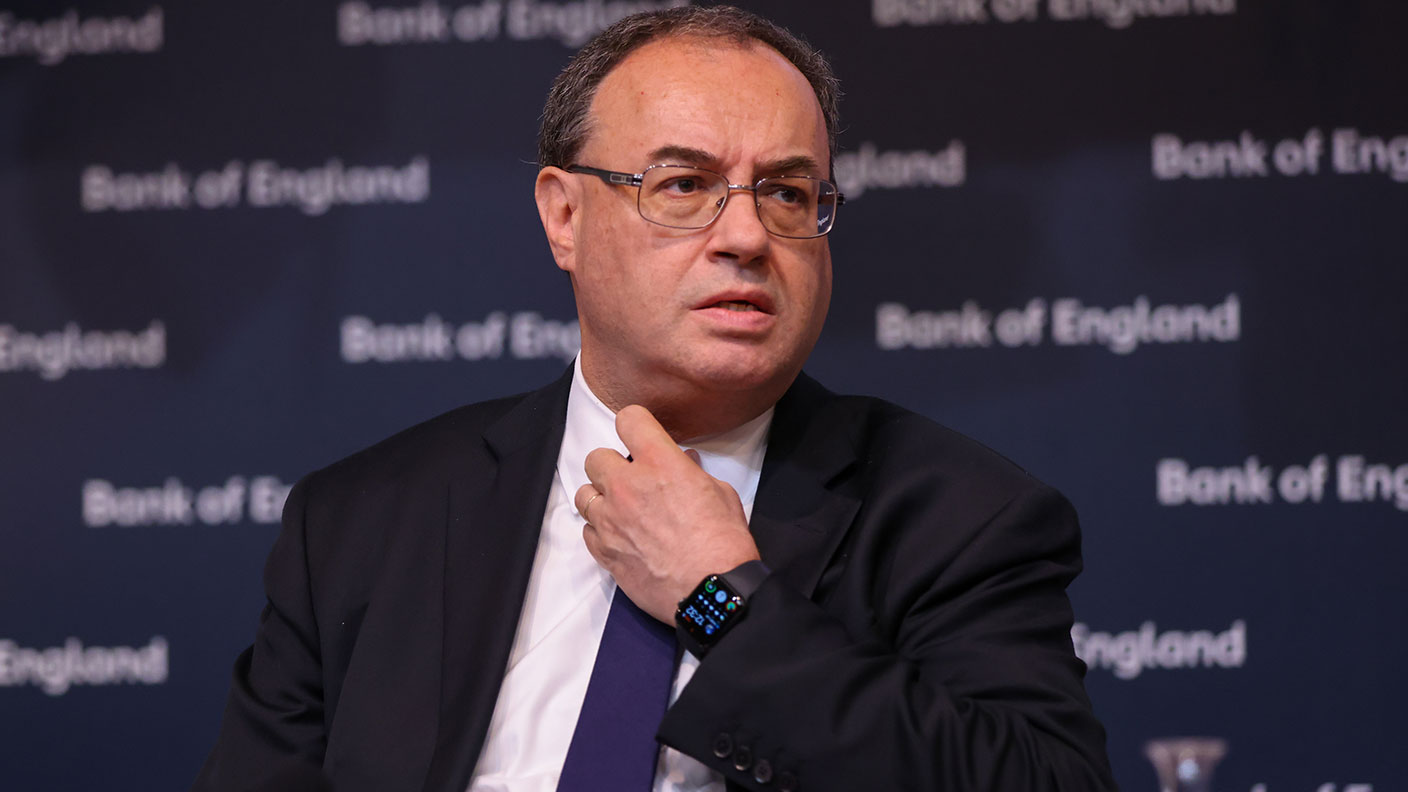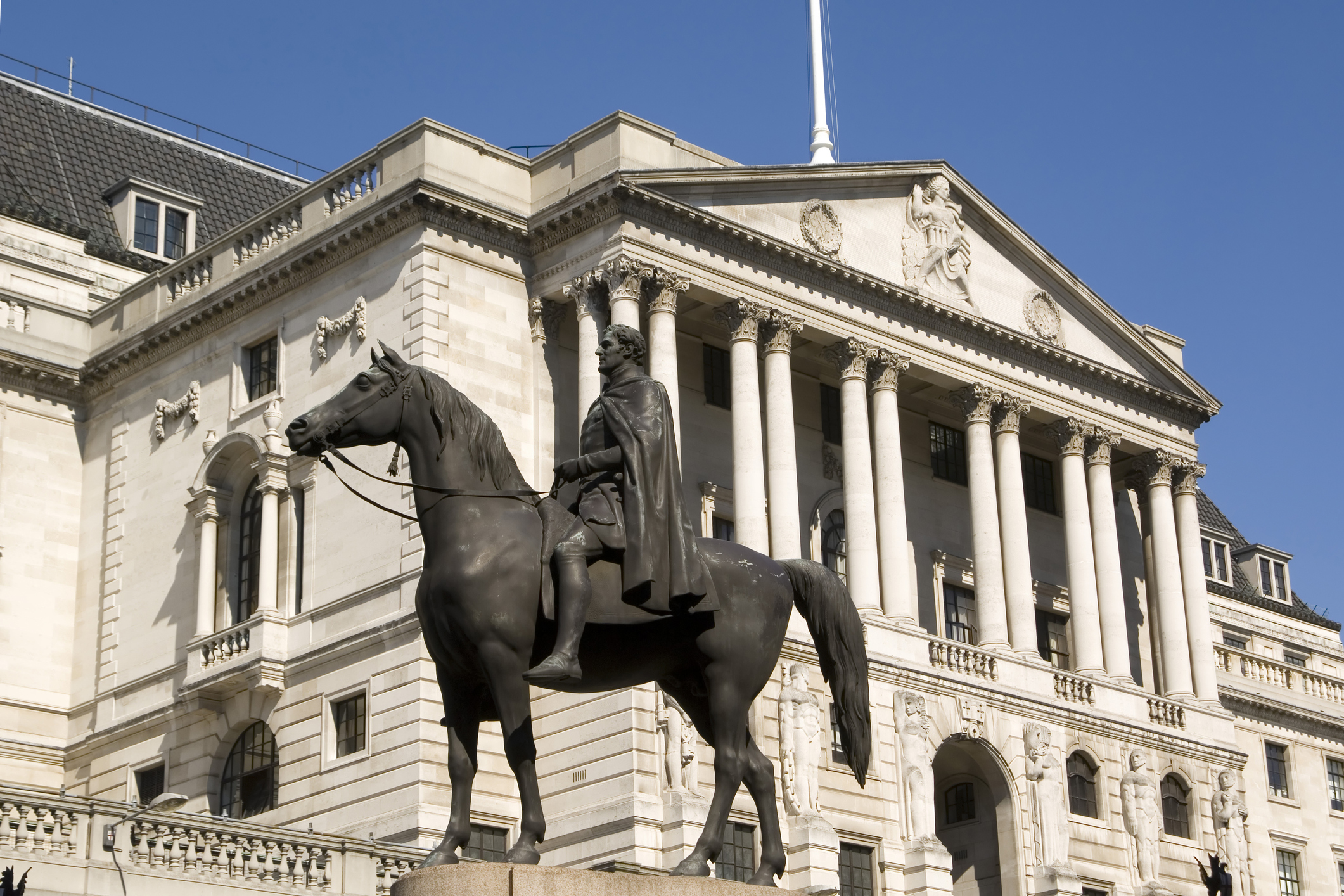The pound slides as the Bank of England raises interest rates and warns of stagflation
The Bank of England raised UK interest rates and warned of soaring inflation and a collapse in economic growth. John Stepek explains what it means for the pound, the economy, and your money.


Get the latest financial news, insights and expert analysis from our award-winning MoneyWeek team, to help you understand what really matters when it comes to your finances.
You are now subscribed
Your newsletter sign-up was successful
Want to add more newsletters?

Twice daily
MoneyWeek
Get the latest financial news, insights and expert analysis from our award-winning MoneyWeek team, to help you understand what really matters when it comes to your finances.

Four times a week
Look After My Bills
Sign up to our free money-saving newsletter, filled with the latest news and expert advice to help you find the best tips and deals for managing your bills. Start saving today!
The Bank of England raised interest rates by a quarter point today – the UK’s bank rate is now sitting at 1%. Those are lofty heights that haven’t been seen since 2009.
But that wasn’t a surprise. The markets had expected that. The mix wasn’t a massive surprise either – six members of the rate-setting Monetary Policy Committee (MPC) voted for the quarter-point rise, and the other three voted for a half-point hike.
What was perhaps more surprising – to the market at least – is just how gloomy the accompanying tone was. For starters, the Bank said that it reckons inflation is set to peak at 10.2% in the fourth quarter of this year.
MoneyWeek
Subscribe to MoneyWeek today and get your first six magazine issues absolutely FREE

Sign up to Money Morning
Don't miss the latest investment and personal finances news, market analysis, plus money-saving tips with our free twice-daily newsletter
Don't miss the latest investment and personal finances news, market analysis, plus money-saving tips with our free twice-daily newsletter
Not very long ago, it was hoping that it would peak at around 8% during the current quarter. That forecast always seemed a little optimistic. However, this looks very much like throwing in the towel.
And let’s bear in mind that this is inflation as measured by the consumer price index (CPI), which almost always runs colder than the retail price index (RPI). CPI at 10.2% implies RPI of closer to 11% or even 12%, which is the sorts of levels we haven’t seen since the very early 1980s.
It’s the Bank’s job to control inflation. It’s meant to keep it at around 2% (to be precise, within one percentage point either way). It’s reasonable for the Bank to acknowledge that it can’t do anything about “global supply problems or the energy prices that are currently pushing up inflation”.
But over 10%? Last time inflation was at that sort of level, the Bank rate was in double-digits. And yet, the Bank is being very careful about promising further rate rises.
Here’s what it says in the Ladybird version of its monetary policy report: “We may need to increase interest rates further in the coming months. But that all depends on what happens to the economy. In particular, we will be watching closely what is likely to happen to the rate of inflation in the next year or two.”
The Bank is not cheerful on the outlook
So why is the Bank reluctant to use what is its only real tool in the fight against rising prices? Well, it’s because those same rising prices are making our economic prospects look really grim.
“Prices are likely to rise faster than income for many people. That means the cost of living for many people will rise.” In turn, that will “lead to slower growth overall.”
In more detail, the Bank notes that it expects household disposable income to endure its second-worst fall on record (ie, since 1964) this year, and for GDP to shrink in the fourth quarter. It also expects unemployment to rise too.
Weak or non-existent growth combined with double-digit inflation lands us square in a world of “stagflation”, which is arguably the worst economic mix thinkable for investors. You’ve got a very weak economy and lots of pressure on companies and individuals, but your central bank can’t do anything to “help” (ie, it can’t cut interest rates or print money) because that would only make inflation worse.
The Bank is crossing its fingers and hoping that 2023 will see lots of inflationary pressure dissipate (because commodity prices don’t rise any further, and global supply chains ease up). But clearly there’s a lot of uncertainty in that forecast.
So here’s the Bank’s story in summary: inflation is going to shoot up, and growth is going to collapse, and we can’t really do much about it.
No wonder the pound tumbled from nearly $1.26 to closer to $1.24 on the news. Sterling was already in the doldrums but the Bank has managed to punch it even lower.
Is the Bank of England too gloomy?
Has the Bank gone from being too calm about inflation to now overcompensating in the other direction? The answer is “maybe”.
As Simon French, chief economist at Panmure Gordon, pointed out on Twitter, “you would only believe the BoE’s growth forecast was a fair reflection of the likely economic path if you think the UK’s energy price cap goes up by a further 40% in October and the government does diddly squat.”
This is a very good point. If energy prices really do end up shooting up again by that amount in October – as we’re heading into winter – you have to imagine that the government would intervene in some way. The politics almost dictate it. And again, it’s possible (though who knows) that prices simply won’t go up by that much come October.
Fingers crossed. In the meantime, the uncertainty over the future direction of interest rates and the ugly growth outlook might – oddly enough – make it less likely that mortgage rates rise rapidly, but it’s still worth reviewing your present circumstances and making sure that you’re on the best mortgage deal.
SEE ALSO:
Too embarrassed to ask: what is stagflation?
Here’s why markets welcomed America’s big interest rate rise
Mortgage rates have hit a five-year high – is it time to fix?
Get the latest financial news, insights and expert analysis from our award-winning MoneyWeek team, to help you understand what really matters when it comes to your finances.

-
 How a ‘great view’ from your home can boost its value by 35%
How a ‘great view’ from your home can boost its value by 35%A house that comes with a picturesque backdrop could add tens of thousands of pounds to its asking price – but how does each region compare?
-
 What is a care fees annuity and how much does it cost?
What is a care fees annuity and how much does it cost?How we will be cared for in our later years – and how much we are willing to pay for it – are conversations best had as early as possible. One option to cover the cost is a care fees annuity. We look at the pros and cons.
-
 How have central banks evolved in the last century – and are they still fit for purpose?
How have central banks evolved in the last century – and are they still fit for purpose?The rise to power and dominance of the central banks has been a key theme in MoneyWeek in its 25 years. Has their rule been benign?
-
 'Governments are launching an assault on the independence of central banks'
'Governments are launching an assault on the independence of central banks'Opinion Say goodbye to the era of central bank orthodoxy and hello to the new era of central bank dependency, says Jeremy McKeown
-
 Why investors can no longer trust traditional statistical indicators
Why investors can no longer trust traditional statistical indicatorsOpinion The statistical indicators and data investors have relied on for decades are no longer fit for purpose. It's time to move on, says Helen Thomas
-
 The Bank of England can’t afford to hike interest rates again
The Bank of England can’t afford to hike interest rates againWith inflation falling, the cost of borrowing rising and the economy heading into an election year, the Bank of England can’t afford to increase interest rates again.
-
 Interest rates held at 5.25% again
Interest rates held at 5.25% againThe Bank of England has kept rates at 5.25% again, in a widely anticipated move. We look at what it means for your money - and what the Bank’s next move could be
-
 Bank of England holds interest rates at 5.25%
Bank of England holds interest rates at 5.25%The Bank has kept rates at 5.25%, ending its run of 14 consecutive increases. We look at what it means for your money - and what the Bank’s next move could be
-
 UK inflation slumps to 6.7% in August
UK inflation slumps to 6.7% in AugustThe latest data shows inflation slowed faster than expected in August, a welcome relief for consumers and the Bank of England
-
 UK wages grow at a record pace
UK wages grow at a record paceThe latest UK wages data will add pressure on the BoE to push interest rates even higher.